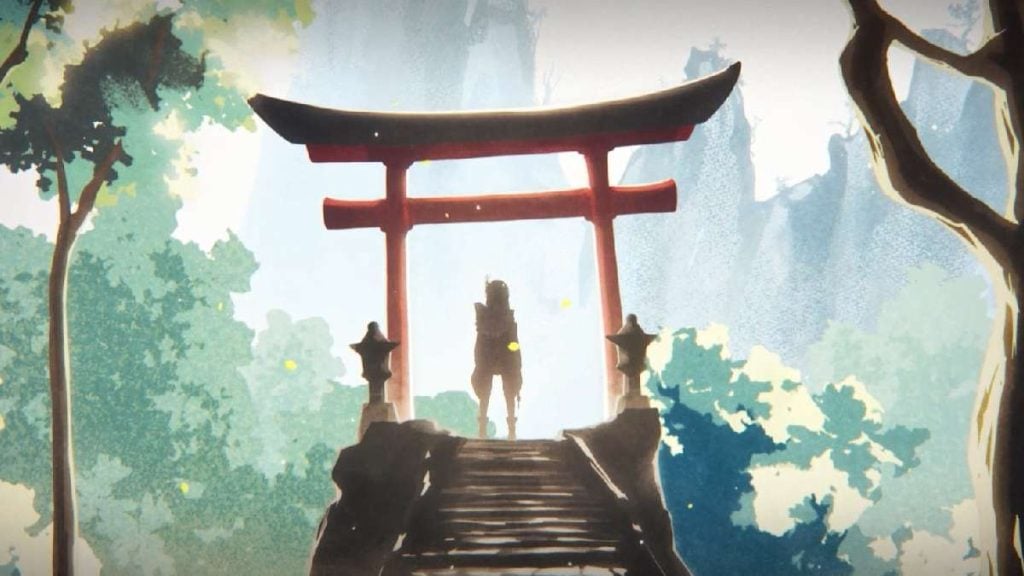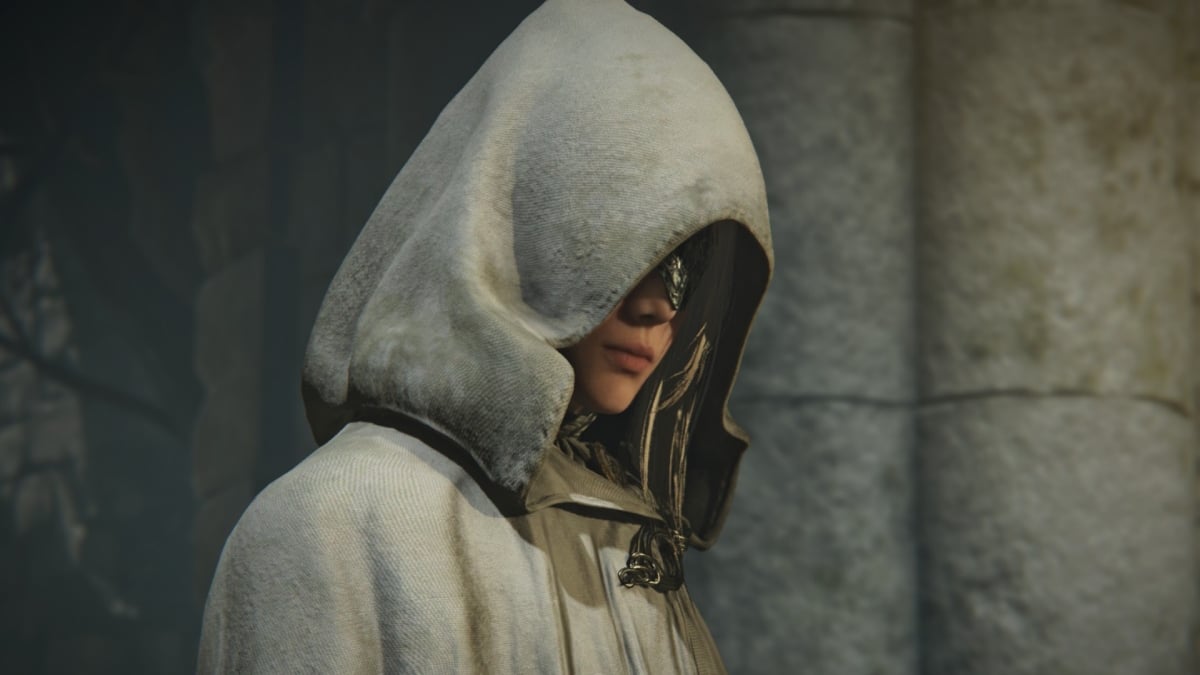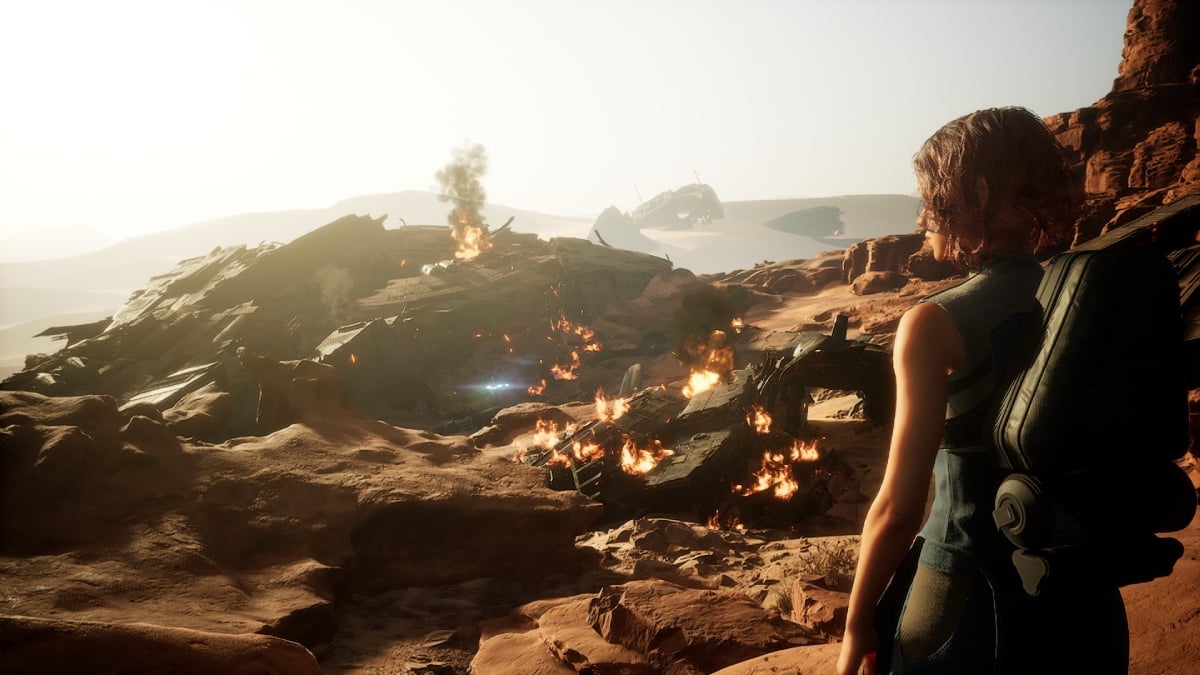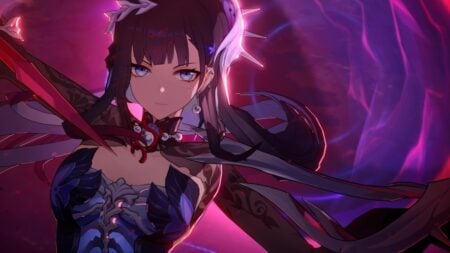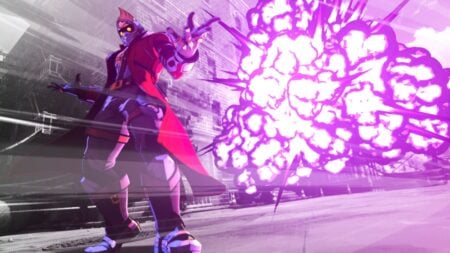Skip To...
I came to Azuma as a blank canvas, unaware of the rest of the Rune Factory saga. As a fan of The Legend of Zelda and the Genshin-like games, I enjoyed my adventure through the somewhat historical fantasy of Rune Factory: Guardians of Azuma. The game feels just like playing an adventure anime (shonen) with all the character tropes, an interesting premise with moments of drama, and the random humor of the Japanese series. Also, you can enjoy familiar RPG elements like swapping out and upgrading weapons and armor. While it’s ostensibly a farm simulator at its heart, what really captured my imagination were the friendship and romance mechanics, with a good variety of love interests to pursue.
Living in an Isekai

The story starts at a very high point, as the two potential main characters are already fighting in the sky on the back of a dragon. I had no idea what was happening. The next second, the character I chose fell from the sky. Fortunately, the Dragon Shrine cushioned the fall from who knows how high. Yet, the protagonist left a massive hole in the roof of the sacred building. Soon after, several colorful characters who already knew the amnesiac protagonist appeared.
The protagonist wakes up from the “weird dream” and goes on to become just another citizen in a half-empty, destroyed village, all because of a cataclysm that contaminated the land and drained the magic power (runes). So, the protagonist turns into the errand boy/girl and fixes everything. The tasks range from finding the town’s carpenter, caring for the crops, building new locations, and even purifying withered plants and turning monsters into people.
That’s right, the main characters can do that miracle because they are the Earth Dancers. These Dancers can cleanse Azuma from the cataclysm’s contamination using the gods’ relics. But to do so, they first must find the gods in a destroyed land with thousands of floating islands full of danger.
Overall, Rune Factory: Guardians of Azuma has an interesting story, but it’s not particularly groundbreaking. It is linear, and the more you delve into it, the more predictable it becomes, but that’s not bad. The fascinating characters are the highlights of the plot. While I didn’t care about the overarching narrative that much, trying to curry favor with one of the bachelors or bachelorettes was my end game, and that definitely kept me occupied.
The Favor of the Gods
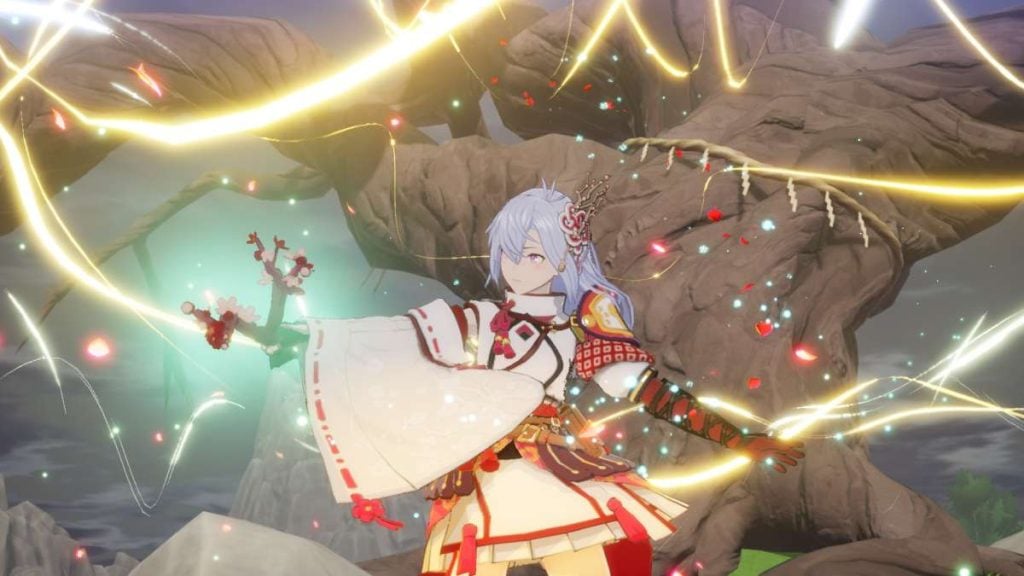
My first impression of the game is that it would be an open world like Genshin Impact or Breath of the Wild. However, while it feels more alive, unlike other Rune Factory games, it’s not enough. Yes, you must investigate a wide world with certain puzzles or hidden objects. But the truth is that you can’t do much with the rivers or the sea, and you can’t climb too much. It feels somewhat limited, though it’s not horrible.
That said, it’s great to travel from village to village and through the floating island, riding on the top of a dragon. There are also several enemies around the map that will help you gather items and level up your character and party. By defeating them, you can also rescue villagers.
What I enjoyed most about the game was the RPG systems, especially the variety of weapons you could use. I found myself particularly comfortable using the longsword, but more with the talismans and the relics of the gods. Besides helping against enemies using our Runes Points (mana), the relics have special powers, like the fire sword to burn corrupted plants or the drum of Spring to revitalize nature. In addition, you will unlock relics as you progress, so sometimes, you will be forced to return to previous villages to solve some puzzles.
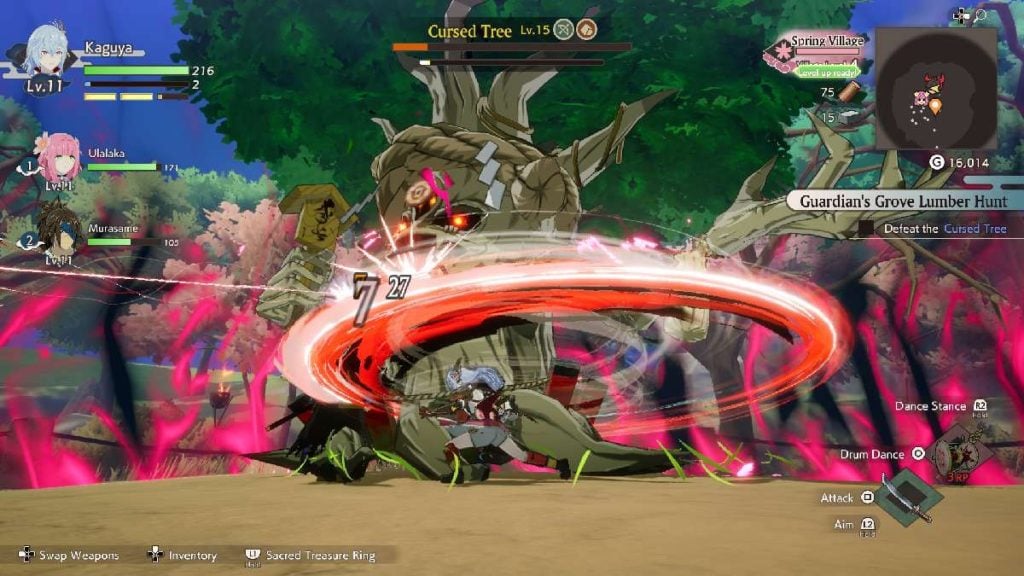
The combat is not particularly difficult, especially for the monsters that are loose. However, the boss fights are more dynamic since each one has different mechanics, like a tree with a target on its head you must hit to stun it, or a knight from which you have to evade his tackles. You decide how to fight him and with which weapon, although it always shows you which are weak to a specific element, making the combat much easier.
Becoming the Mayor
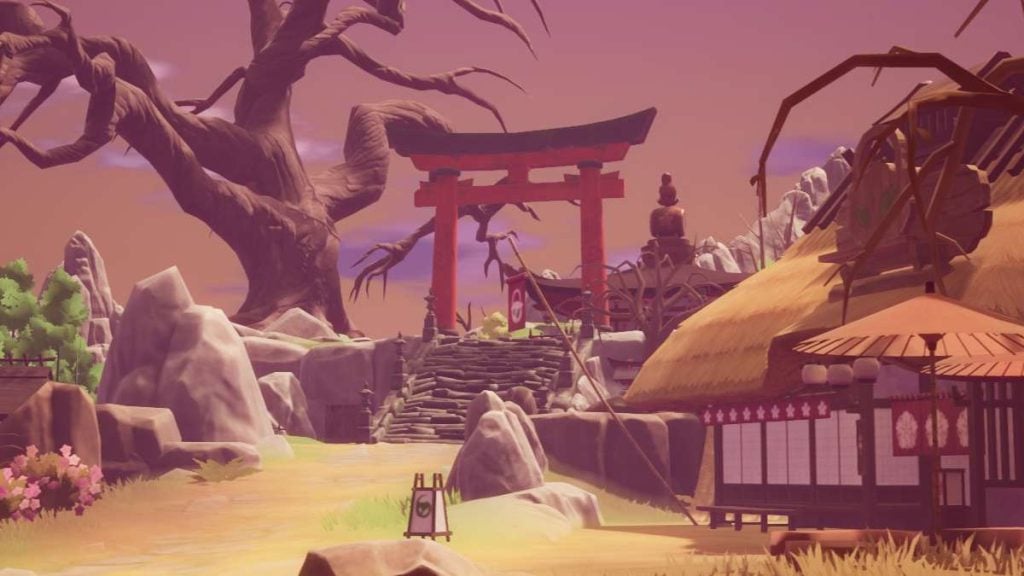
Another key feature of Rune Factory: Guardians of Azuma is the farm simulator. However, if you expect a system as detailed as Stardew Valley, you won’t find it here. In your village, even though you become the mayor, you only have some space for your plot. You can put crops and some buildings. Sure, you can place decorations and paths to make it more appealing, but the sad part is that it can hardly interact with anything you build. The plants and production will depend a lot on what village you are in; for example, in Spring, there will be cherry trees, and in Summer, there will be pine trees.
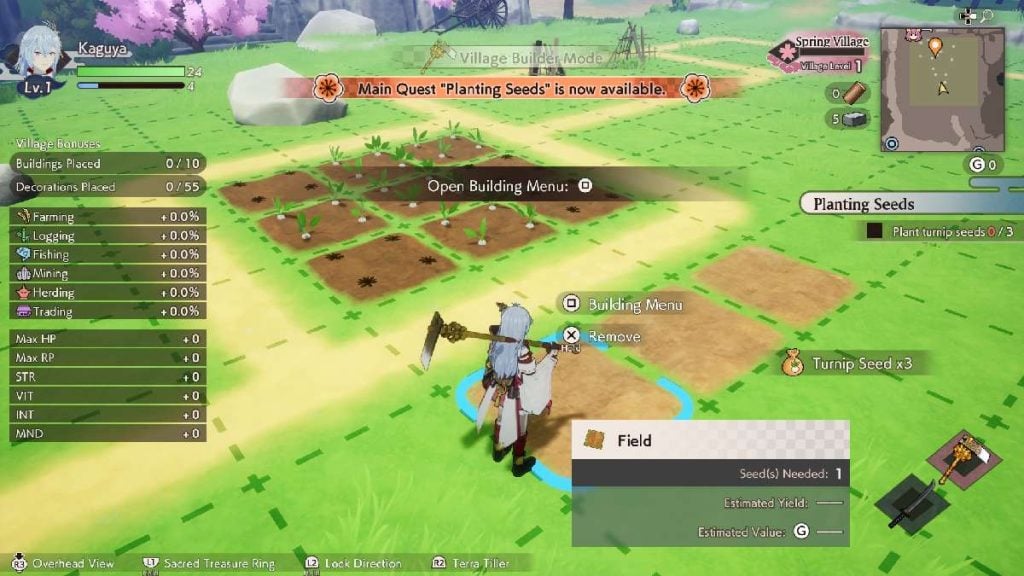
Fortunately, the more you work on your village, the more you will level up and unlock more buildings and upgrades. So you don’t have to spend all the time caring for your plants. As mayor, you can assign jobs to the villagers, but take into account the bonuses of each one. Some citizens find it easier to be lumberjacks or miners, others can harvest crops faster, and others can tend to the village stores. So it will be handy to rescue people as you go on adventures, but you can’t neglect your responsibilities as mayor, or people will end up moving away, and that is bad for business.
Love In Times of Dragons
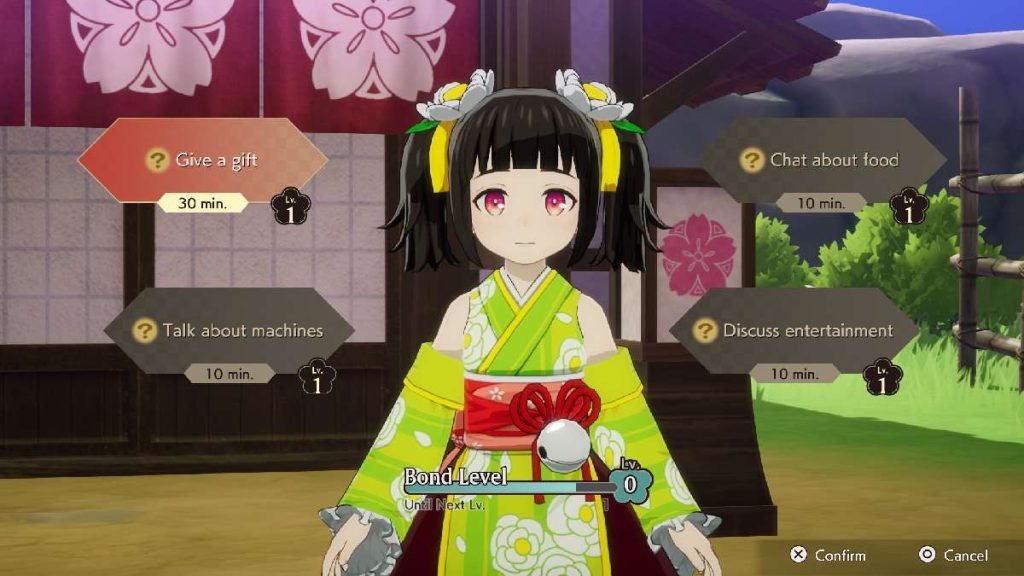
Having several options for romance and, of course, having friends is tempting. But let’s start with friendship. To begin forming a bond with the characters, it will be enough to talk to them, at least at the beginning. Then you can give them gifts; the bond will grow more if you give on their birthday and if it’s something they like. For me, it was easier to increase friendships by taking my friends to my party, and you only need friendship level 1 to bring companions to fights. Yet, friendship doesn’t grow because you have the character with you, but because it depends on your actions and their preferences, too. For example, Murasame improves his bond after defeating enemies, and Ulalaka improves hers when the protagonist purifies plants.
Don’t expect a profound friendship or romance system, as it is also constrained. The characters’ personalities, in general, are anime stereotypes, sometimes making them feel very flat. However, you can learn more about your favorite companion in the friendship missions.
An Epic Tale of Love and Farming
Rune Factory: Guardians of Azuma is a great game that combines simple RPG systems, a farm simulator, and romance. Its story is entertaining and engaging, although I don’t think it is one that will go down in the history books, due to its overly familiar story beats. Still, it is like living in an anime, which is a big plus to me. Really, this installment is a good stepping stone if the next installment plans something much more ambitious.
Even so, with Guardians of Azuma, I was hooked on improving my friendships and making my village look better. However, the combat also has something special without being too overly complicated. But I can’t lie that having a dragon at our disposal adds a lot of epicness to the story and your journey through its charming world.
Rune Factory: Guardians of Azuma (PC Review)
Rune Factory: Guardians of Azuma is a game that well combines several systems, such as farming, RPG, combat, open world, and romance. The story and characters are engaging because they resemble action anime. But it needs much more to compete with many games in its category.
Pros
- Excellent replica of the anime style in 3D
- The characters have good designs and incredible voice actors
Cons
- Linear story with several cliches
- Farming and romance systems need more depth

